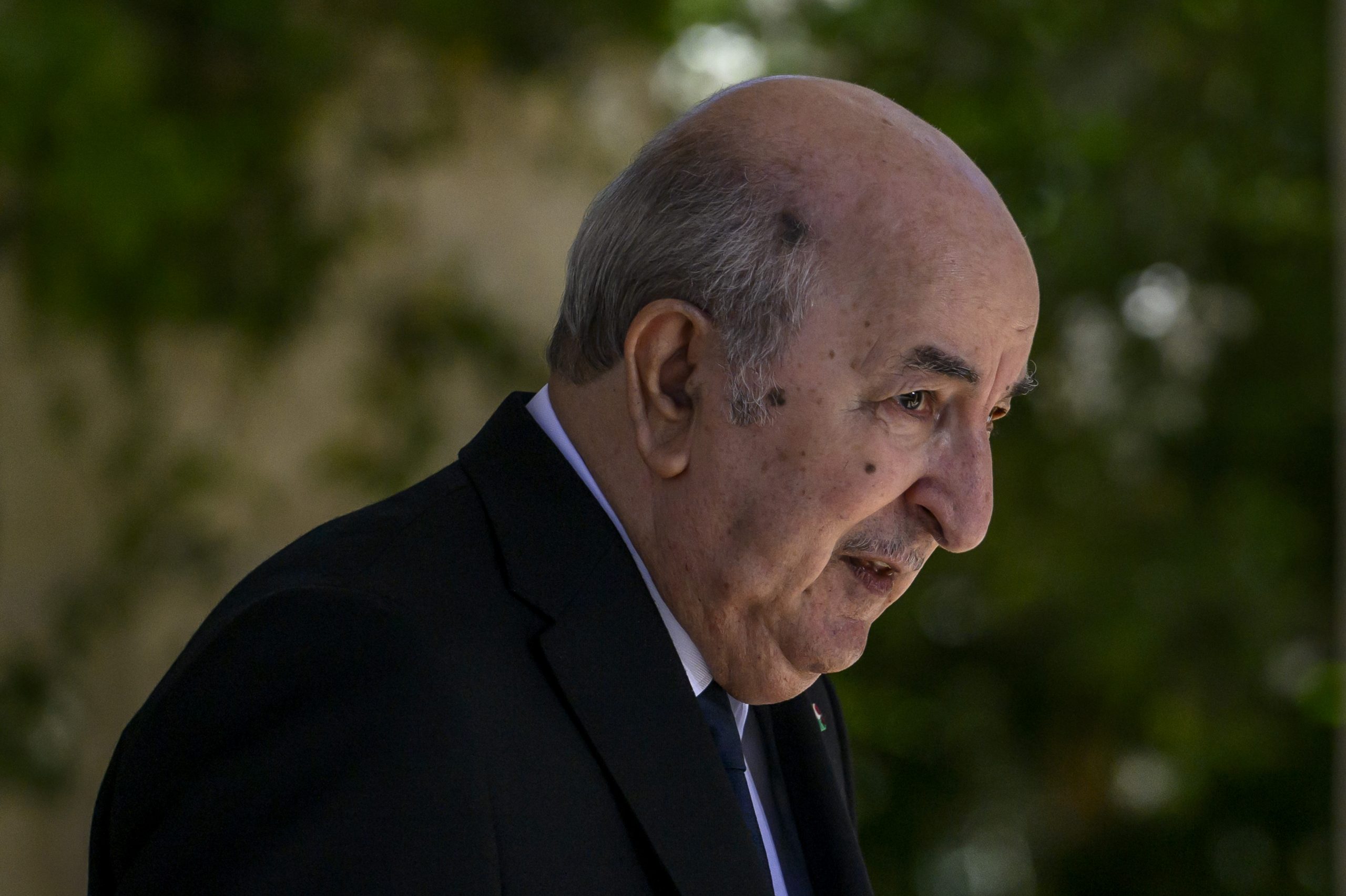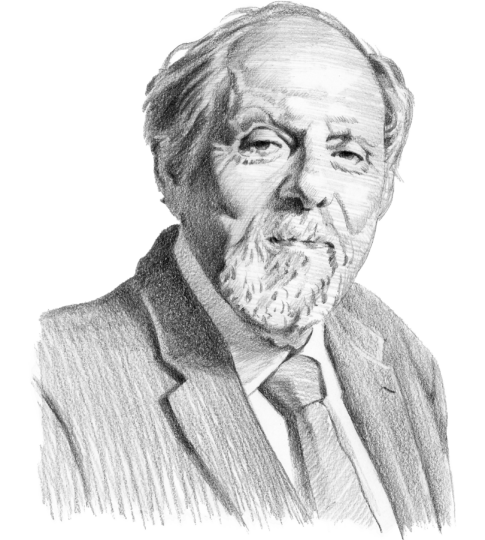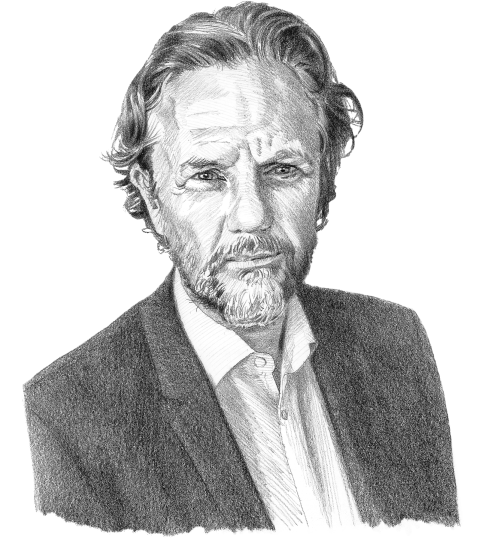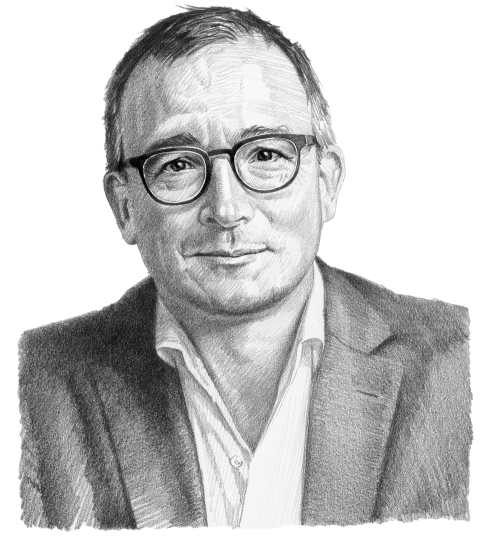Algeria’s fraught path to elections
Algeria faces a critical juncture as President Tebboune aims to secure his grip on power amid mounting protests.

In a nutshell
- President Tebboune has strengthened his control over Algerian politics
- The upcoming presidential elections could see an extremely low turnout
- The improving economic outlook will likely help the leader stay in power
On September 7, 2024, Algeria will hold its presidential election. The incumbent, 78-year-old Abdelmadjid Tebboune, is a veteran in Algerian politics. He served as minister of communication and culture from 1999 to 2000, and as minister-delegate for local government from 2000 to 2001. He was twice appointed minister of housing and urban planning (2001-2002 and 2012), and in May 2017, he became prime minister. He held the role until August 2017, when he had to step down because “his vision was not in line” with that of President Abdelaziz Bouteflika. Despite this, Mr. Tebboune made a comeback. He was elected president in December 2019, and has been governing Algeria since then.
Strategic moves to consolidate power
As is often the case in Algerian politics, President Tebboune waited until the last minute – on July 11, a week before the deadline – to declare his candidacy in the presidential elections. After a visit to the highly anti-government area of Kabylia, he stated that “if the Algerian people want to vote for me, that’s fine, otherwise I’ll have accomplished my mission and whoever succeeds me will be welcome.”
Many politicians initially considered running, but due to a highly restrictive vetting process, only two challengers to the incumbent president remain: Youcef Aouchiche of the Socialist Forces Front and Abdelaali Hassani Cherif of the Islamist-leaning Movement for Society and Peace party.
The elections were originally supposed to be held in December, and many argue that the change was made for strategic reasons: to make it difficult for potential challengers to gather the necessary signatures to participate. A handful of outsider candidates was originally in the running. Among them was Louisa Hanoune, head of the influential Algerian Workers Party, who withdrew from the presidential race, citing “unfair conditions.” A veteran candidate, Ms. Hanoune had also run in 2004, 2009 and 2014. Her withdrawal carries significant consequences, including a boycott of the elections by her own party.
President Tebboune’s methods have been broadly criticized; many politicians signed a protest letter in late July 2024 to denounce “the authoritarian climate” and the dictatorial direction of the current government. This dissent adds to an already contentious situation, considering the leader’s 2019 victory, when he won with 58 percent of the vote – but with only 20 percent of Algeria’s registered voters participating. In the coming election, widespread opposition from various political parties could lead to disastrously low voter turnout and questions about whether the winner actually secured a mandate.
Mohamed Charfi, President of the National Independent Authority for Elections, attempted to justify why so many candidates were disqualified. He stated that some candidates had forged signatures, while others failed to meet the required quorum of supporters – 600 signatures from elected officials or at least 50,000 signatures from registered voters. However, doubts remain about the accuracy of these statements.
Adding to the uncertainty is the government reshuffle in the last quarter of 2023, during which Prime Minister Aymen Benabderrahmane was replaced by Nadir Larbaoui, a Tebboune loyalist, along with the ministers of agriculture and transport, two critical sectors in Algeria. Moreover, the head of the state-owned energy giant Sonatrach, Toufik Hakkar, was replaced by another Tebboune supporter, Rachid Hachichi. The timing of these changes, so close to the end of the president’s term, suggests a clear motive: to consolidate his power base by placing allies in strategic positions, thereby increasing his control over decision-making processes.
Energy windfall
In December 2023, the Algerian government passed a budget law totaling 103 billion euros, representing a 10 percent increase in spending for 2023, with a particular emphasis on defense and internal affairs. Algeria leads Africa in military spending and ranks third in the entire Middle East, following only the United Arab Emirates and Saudi Arabia.
The Algerian economy has benefited significantly from Europe’s energy demands during the Russian occupation of Ukraine. The macroeconomic trend has been increasingly favorable in the past two years, largely due to a substantial and unexpected increase in oil and gas exports. This resurgence has repositioned Algeria as a key energy supplier after years on the sidelines.
President Tebboune has capitalized on this opportunity to strengthen state finances and curb inflation. The economic boost has also allowed for an increase in social spending, which could be a significant factor in the upcoming elections. The figures are telling: Industrial production rose by 3.2 percent in the last quarter of 2023, driven by a 7.6 percent increase in the energy sector compared to the previous quarter. The agribusiness, textile and wood industries saw growth rates of 20, 20.6 and 29.8 percent respectively. To address the challenges of an aging energy infrastructure and lackluster exploration activities, Mr. Hachichi has implemented a four-year investment plan worth $50 billion.
Facts & figures
Algeria’s gas exports in 2022, billion cubic meters

As noted in a report from October 2022, the war in Ukraine has significantly altered the economic dynamics of gas purchases: “Before the Russian occupation of Ukraine, Algiers supplied only 11 percent of the European Union’s gas needs, compared to 47 percent from Russia. The African country exported about 83 percent of its gas to Europe, with Italy and Spain receiving 65 percent of Algeria’s gas exports in 2021.” By 2023, Russia’s share of pipeline gas in EU imports had dropped to around 8 percent, opening the market to increased supplies from Norway, the United States and Algeria. Frequent visits to Algiers by European politicians and business leaders make clear Algeria’s growing importance as a crucial player in meeting Europe’s gas needs.
Human rights violations and geopolitical tensions
In 2022, GIS highlighted the extent to which European leaders were willing to overlook Algeria’s human rights issues, a trend that has worsened over time. The government’s repressive actions against its own citizens are well-documented by organizations such as Amnesty International and Human Rights Watch.
Furthermore, Algeria, particularly through desert routes via Niger and Mali, serves as a major hub for migratory flows to Europe along both the Western and Central Mediterranean routes. According to the Global Detention Project, there were 250,378 international migrants in Algeria in 2020, and by 2023, 99,389 refugees, many of whom have been arrested due to “racial profiling. … Tens of thousands of people – including women and children – have been forcibly deported to desert areas bordering Mali and Niger, often under threat of violence.”
Meanwhile, Algeria’s relations with neighboring countries are often strained, as evidenced by the decades-long tensions with Morocco over the Western Sahara and Polisario Front issue, and the deteriorating relations with Mali concerning the Tuareg rebels. The peace agreement signed in Algiers in 2015 was rejected by the military junta now ruling in Bamako, further affecting relations. This latest rupture, following the breakdown in relations with France, does not bode well for Mali’s stability or for that of its neighboring countries, whose borders are notoriously porous and challenging to control.
More by Federica Saini Fasanotti
- The Russian strategy in the Mediterranean
- Can federalism bring stability to Libya?
- The future of private military companies
Algiers maintains a strong partnership with the Kremlin, which is currently more economic than ideological. Algeria is the third-largest arms importer in the world, after India and China, purchasing about half of the Russian arms exported to Africa. In turn, Russia is Algeria’s largest arms supplier by a significant margin.
Scenarios
More likely: Tebboune is re-elected
This is currently the most plausible scenario. Many favor the incumbent president, who is supported by the establishment and the military, both of which wield considerable influence in Algeria. Over recent years, President Tebboune has shown resilience and an ability to adapt to the political landscape, making him the clear frontrunner in the election.
Less likely: Tebboune steps aside amid major protests
If protests gain momentum and coalesce into a new political movement, there is a chance some of the disqualified candidates would reenter the race. While this would bring a glimmer of hope for change, given the strong backing President Tebboune enjoys from much of the old establishment and the military, as well as the measures he has taken to solidify his position, this scenario remains unlikely.
For industry-specific scenarios and bespoke geopolitical intelligence, contact us and we will provide you with more information about our advisory services.







